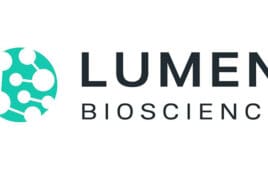
A team of investigators from the University of Pittsburgh has identified compounds that block the reactivation of latent HIV-1 in a human cell line containing the latent virus. The research is published December 3rd in Antimicrobial Agents and Chemotherapy, a journal of the American Society for Microbiology.
The compounds the researchers tested came from a library of 418 different “kinase inhibitors.” Kinases target a wide range of signaling pathways within cells, regulating critical cellular functions such as DNA transcription and translation, and cellular metabolism. These pathways apparently include ones that can reverse latency of HIV-1 virus that has become integrated into the human genome. Thus, the research could lead to ways to permanently suppress HIV infections, said Benni E. Vargas, a Ph.D. student in Microbiology and Immunology at the University of Pittsburgh School of Medicine
The researchers had infected the cell line with HIV-1 that then became dormant within the cells. The virus contained a “reporter gene,” which would light up during reactivation so that the investigators would know if reactivation occurred. The cell cultures were then given an HIV-1 activating small molecule compound, and each culture was exposed to one of the 418 different kinase inhibitors.
“There’s a need to understand the mechanisms and signaling pathways by which the host cell regulates HIV-1 latency and reactivation,” said Vargas. “What better way to identify these host signaling pathways than to screen a whole library of drugs that target different parts of the host signaling pathway?”
A potential downside of the kinase inhibitors is possible toxicity to human cells, said Mr. Vargas. The investigators gauged toxicity by measuring cellular production of ATP, a compound manufactured in cells which functions as cellular fuel, within the tiny cellular motors, the mitochondria. A notable reduction in the quantity of ATP, as present, as compared to normal, would indicate toxicity, said Mr. Vargas. Twelve kinase inhibitors blocked reactivation irrespective of latency reversing agent, and two of these did so with minimal toxicity.
The motivation for the research was that several other groups had previously identified inhibitors of kinases that block reactivation of the dormant HIV-1 provirus, said Vargas.
Filed Under: Infectious Disease



